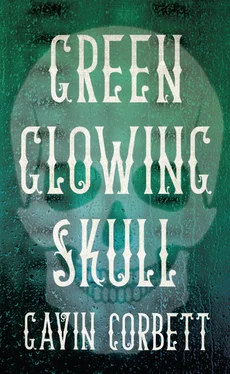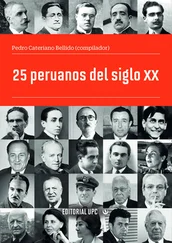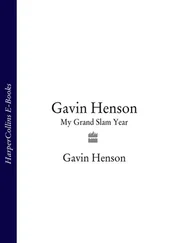From Cordova to there.
Beware the power at their backs,
From Finisterre they glare.’
***
The Puffball Store was one of many innovations personally envisioned by Puffball’s messianic founder and chief executive officer Townsend Thoresen. It was a destination in itself, so it was said; Rickard had passed it before on his daytime walks in Midtown, barely noting its presence, which was obvious mainly for the backpack-wearing crowds that milled around on its piazza and the shrill collective noise that they made. In the evening, with the crowds thinner and with the benefit of artificial lighting, he could better appreciate the structure, or what was visible of the structure, for most of it was underground. Above the street, set well back on the piazza, was a great glass dome, composed, wondrously, of eight interlocking sections. It was lit from inside, and the light was so concentrated at the seams of the glass that the dome appeared to be held together with green laser beams.
The dome protected the entrance to a spiral stairwell, also made of glass. At the bottom of the stairwell Rickard found a quiet shop floor. Instantly he was placated by the atmosphere of calm. Lighting was low and easeful; cream marble floor tiles, smooth and concave like old worn flagstones, softened the clunk of his boot soles; wall tiles bore the imprint of prehistoric ocean life. Lines of machines on long white counters cast users’ faces in a lunar pallor. Shop staff seemed aloof; strangely so: they stood apart from one another at even widths with their backs against the wall, lit from underneath like deco idols.
Rickard took a machine in the centre of a bank of unused machines. With great self-awareness he held a casual pose. Before long, the calm he had felt disappeared, and trepidation overcame him.
He had had a bad relationship with computing technology to this point. In his job in Dublin, in Verbiage, the text-mining company, it had never been his business to use computers in a comprehensive way. Before then, long before then, at an early age, he had decided that he would not use computers in any way at all. Resolve had quickened to principle. He was seized now in inaction, bent forward at the waist, arms splayed, elbows locked, heels of hands numb, as if guarding against something that might fly out of the monitor. This, he knew, was a ‘hardware’ problem: exposure to a mere screen and keyboard brought him out in a lather of sweat.
(Did technology, in the course of his passive absorption of its ethereal communications, detect his hostility? It did not seem so outlandish a thought. The world of information, he was told, was not just a paperless one but a wireless one now too. The medium was the air — even matter — itself; its bore limitless. Moving in three dimensions these days was to move through a fourth dimension, and for it to move through him. This was an increasingly self-governing and self-perpetuating ecosystem. Washing machines implanted with microchips sitting in utility rooms in the Cook Islands conversed with the factories that created them in the Netherlands while their unwitting owners dozed on verandas outside; cars were guided by bodiless eyes from behind the stratosphere. Encrypted military communiqués, scrambled recordings of Mozart symphonies, disassembled pornographic images — on every ordinary day all passed through his body on their way somewhere else, unprompted by human fingers. What messages were these pulses picking up from the electrical exchanges taking place in his nerves and cells, and what were they making of them?)
Four hours easily slipped by. His eyes became dry. He spent time on a website devoted to The Severe Dalliance . So strange for him to see this, The Severe Dalliance , made in 1976, cooed over on a computer by people who claimed to appreciate the warmth of the celluloid print. There were categories: FAN FICTION was one. The idea was appalling, the thought of these ‘fans’, hypocrites, rabid and proprietary in their enthusiasm, internet communicators, entering data by rows, by columns, intersecting with each other, forming cells, swapping TRIVIA — another category.
His movement — he had straightened suddenly — must have caught the attention of one of those members of staff in praetorian pose: slinking out of the beam of her floor light, into shadow, and into soft, diffuse light again, came a girl. She was in her twenties, no older than twenty-five, dark haired. Her eyes were the most supernaturally wolfish grey, and her fringe hung in a silk curtain ending in a straight border just below her eyebrows. A name tag on her T-shirt read FONDLER.
‘What can I do for you?’
He had no answer, but said, finally, ‘I’m looking for information.’
‘Information? On …?’
‘Um.’
Her eyes, Rickard saw now, were not in fact grey but the deepest black: the grey had been a reflection in her pupils of the light from the screens.
‘On a product?’ she said.
‘No, not on a product. Information on the internet.’
‘On …?’
‘The internet.’
‘Does your query have a specific application to any of our hardware or software?’
‘I want to look something up on the internet.’
He gestured to his screen and an animated caricature of Townsend Thoresen that had appeared.
‘As you can see, the internet has vanished.’
‘That’s a screensaver, sir. Press any key and you’ll be on the internet again.’
The rest of his time he spent looking up Toni on social media and other websites. She was surprisingly easy to find — surprising, because she was not a sociable or voluble person. But here, she was everywhere, with an opinion on every matter. Most of her sentences ended in exclamation marks, but she rarely exclaimed anything in reality (meaning the real, speaking, face-to-face world, which, Rickard had to remind himself, was a world that he and Toni occupied together, at the same time, a very long time ago now, it seemed).
***
‘Well, it looks like we’ve landed ourselves in the image-sourcing business,’ said Rickard’s boss at Verbiage, Robert, overwhelmed, on his return to the office from the western midlands of Ireland where he had been trying to solicit work.
‘Images?’ said Rickard. ‘Landed?’
‘Oh boy, yeah,’ said Robert, resting his head back into the sling of his hands, and looking even a little expectant now. ‘I had a bottle of whiskey with the head of the syndicate two nights ago. They’re building a tower in the bog, eighty floors high, with a quarter of a million LCD screens on the outside and inside. He needs a different image for every single one of those screens. He’s calling it the Europa Tower. Each of the pictures has to be a painting by a famous European artist. I told him that I could deliver the images before anyone else could. He said this time six months would be fine. The money’s not great, but I think I could get more business out of these people.’
Robert set to work finding free pictures on the internet. By the end of the day he had collected some fifty pictures of paintings and put them in a folder on his computer. This folder was also accessible via Rickard’s computer. (The computers were connected in some way.) While Robert was on his lunch, Rickard opened the folder to see what his boss had found. When he clicked on one of the picture files it opened not a picture but a page of gobbledegook text (the text-encoded binary data that Robert often harvested for concrete poets). It was so stark and ugly and unanticipated — like a spider on the back of his hand — that he panicked, stabbing his keyboard and adding some text, though he immediately deleted what he thought he had added.
A couple of days later Robert announced:
‘Brilliant, Rickard! The syndicate thinks it’s great!’
Читать дальше
Конец ознакомительного отрывка
Купить книгу












